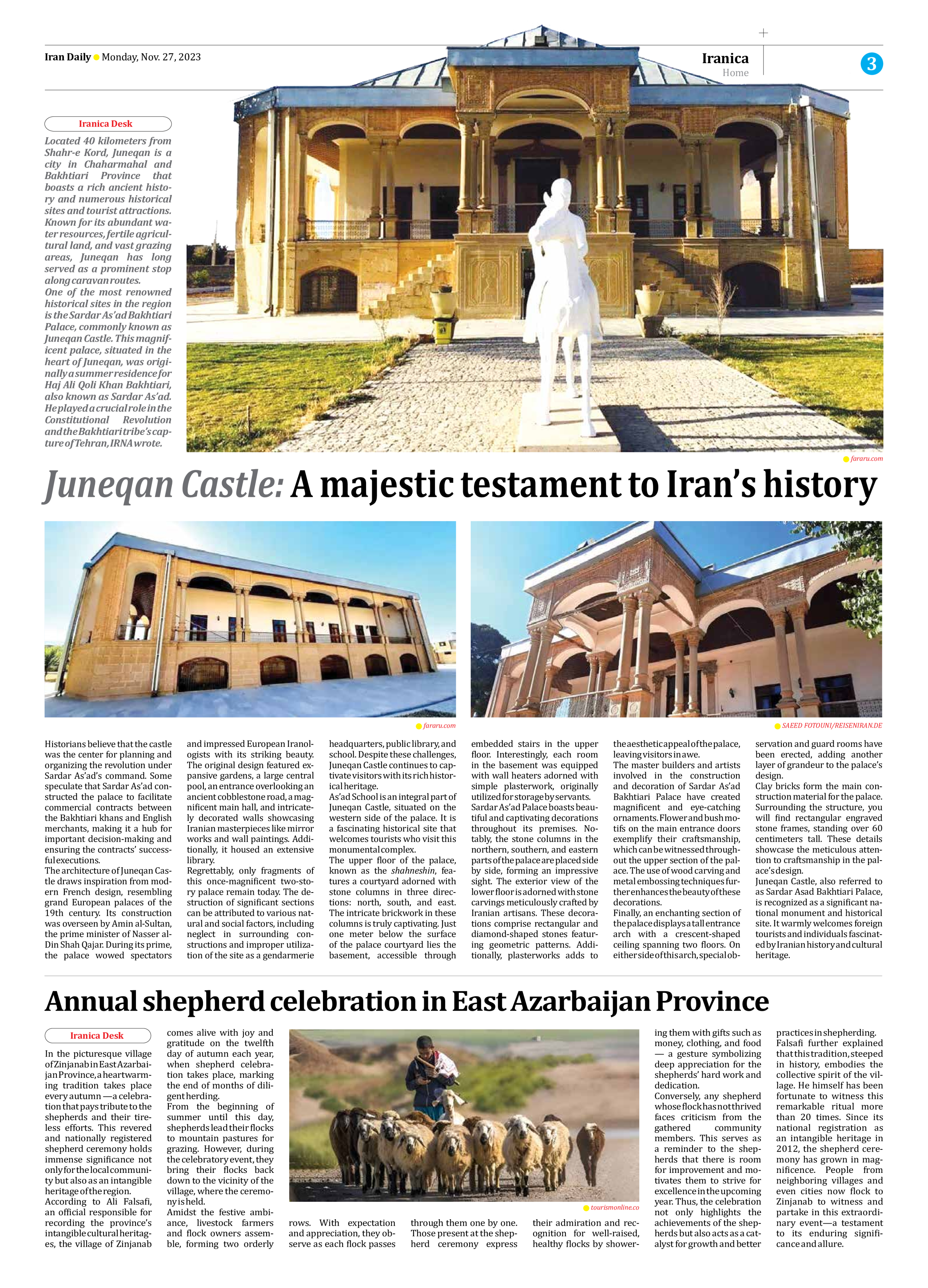
Annual shepherd celebration in East Azarbaijan Province
In the picturesque village of Zinjanab in East Azarbaijan Province, a heartwarming tradition takes place every autumn —a celebration that pays tribute to the shepherds and their tireless efforts. This revered and nationally registered shepherd ceremony holds immense significance not only for the local community but also as an intangible heritage of the region.
According to Ali Falsafi, an official responsible for recording the province’s intangible cultural heritages, the village of Zinjanab comes alive with joy and gratitude on the twelfth day of autumn each year, when shepherd celebration takes place, marking the end of months of diligent herding.
From the beginning of summer until this day, shepherds lead their flocks to mountain pastures for grazing. However, during the celebratory event, they bring their flocks back down to the vicinity of the village, where the ceremony is held.
Amidst the festive ambiance, livestock farmers and flock owners assemble, forming two orderly rows. With expectation and appreciation, they observe as each flock passes through them one by one. Those present at the shepherd ceremony express their admiration and recognition for well-raised, healthy flocks by showering them with gifts such as money, clothing, and food — a gesture symbolizing deep appreciation for the shepherds’ hard work and dedication.
Conversely, any shepherd whose flock has not thrived faces criticism from the gathered community members. This serves as a reminder to the shepherds that there is room for improvement and motivates them to strive for excellence in the upcoming year. Thus, the celebration not only highlights the achievements of the shepherds but also acts as a catalyst for growth and better practices in shepherding.
Falsafi further explained that this tradition, steeped in history, embodies the collective spirit of the village. He himself has been fortunate to witness this remarkable ritual more than 20 times. Since its national registration as an intangible heritage in 2012, the shepherd ceremony has grown in magnificence. People from neighboring villages and even cities now flock to Zinjanab to witness and partake in this extraordinary event—a testament to its enduring significance and allure.







